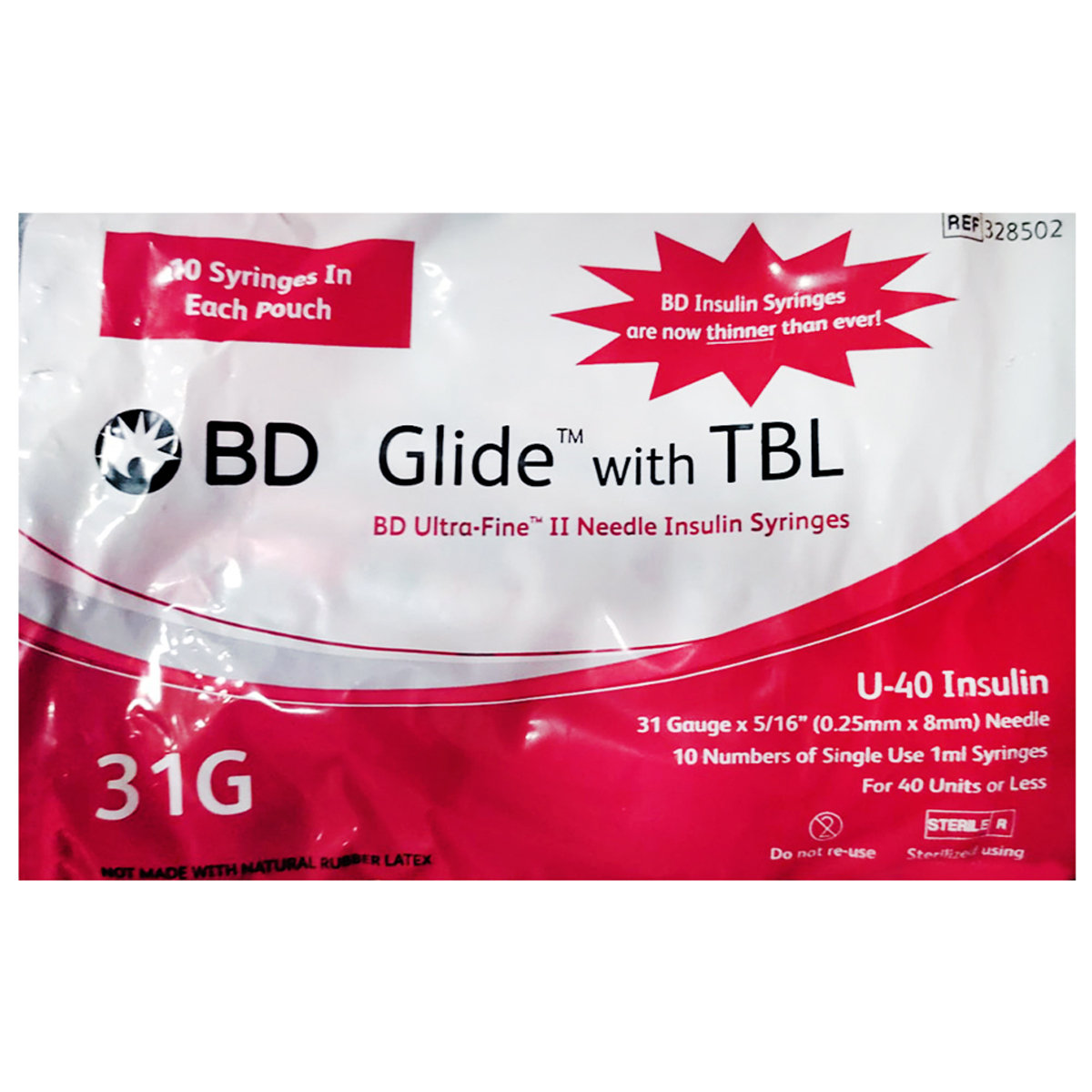Valium 10Mg Tablet
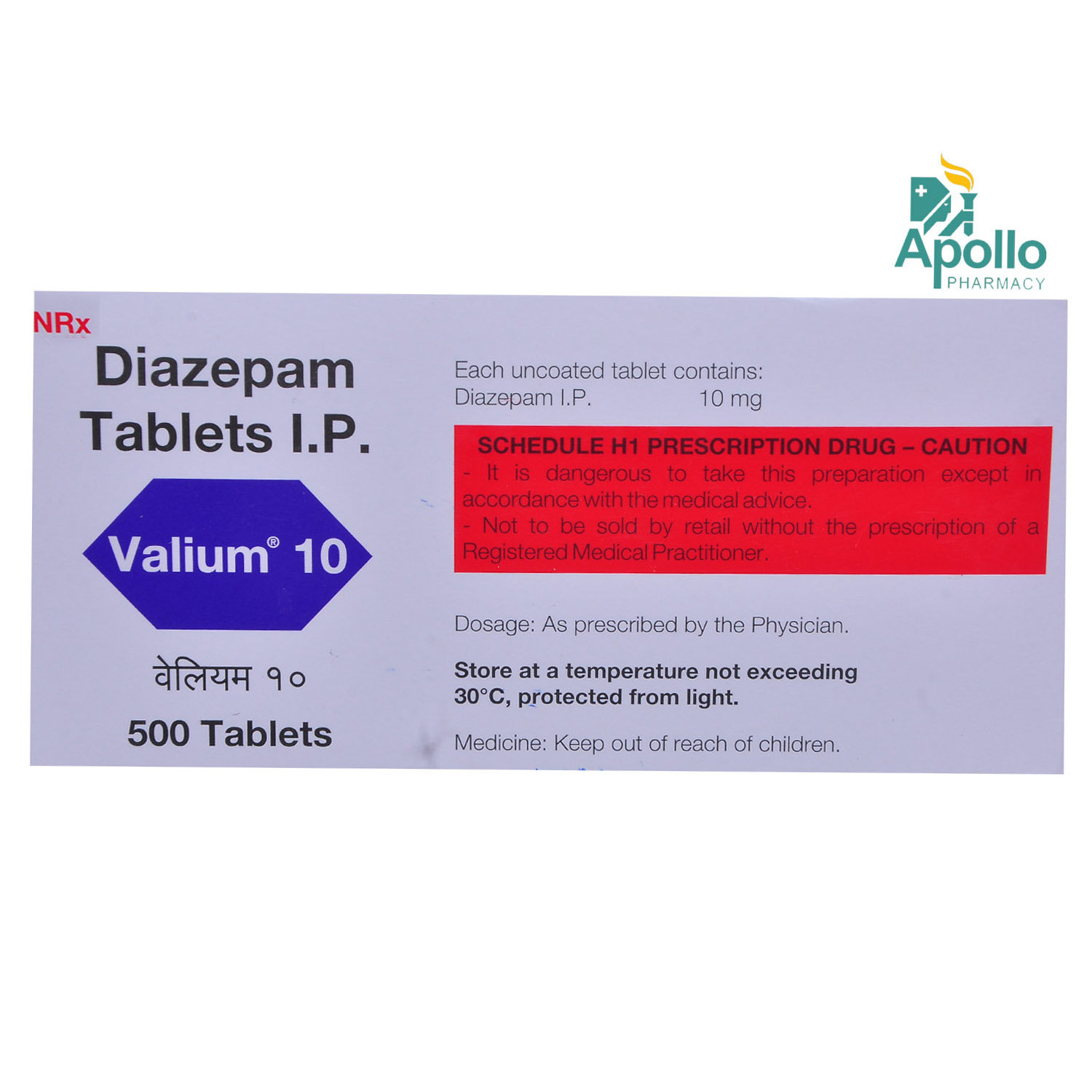
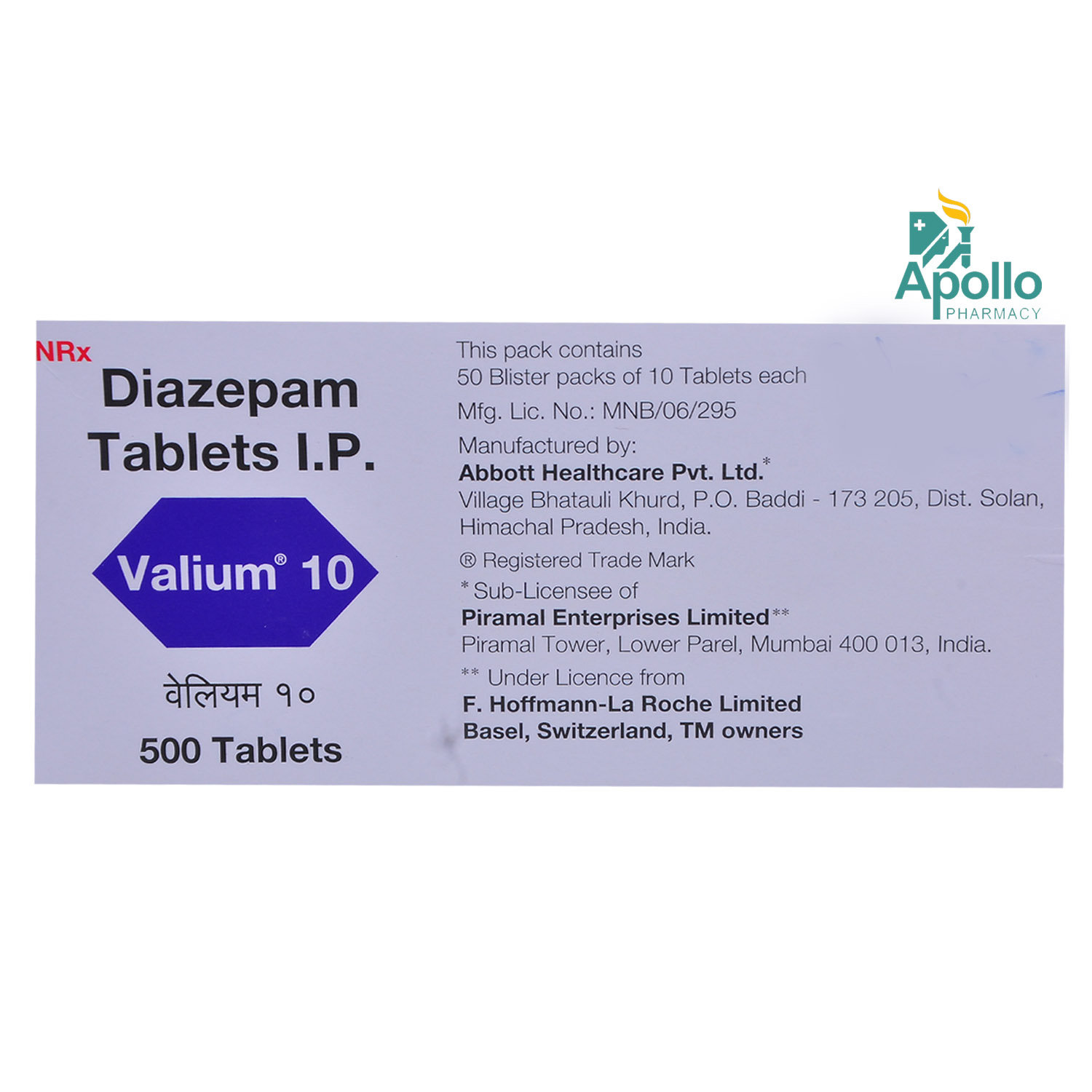
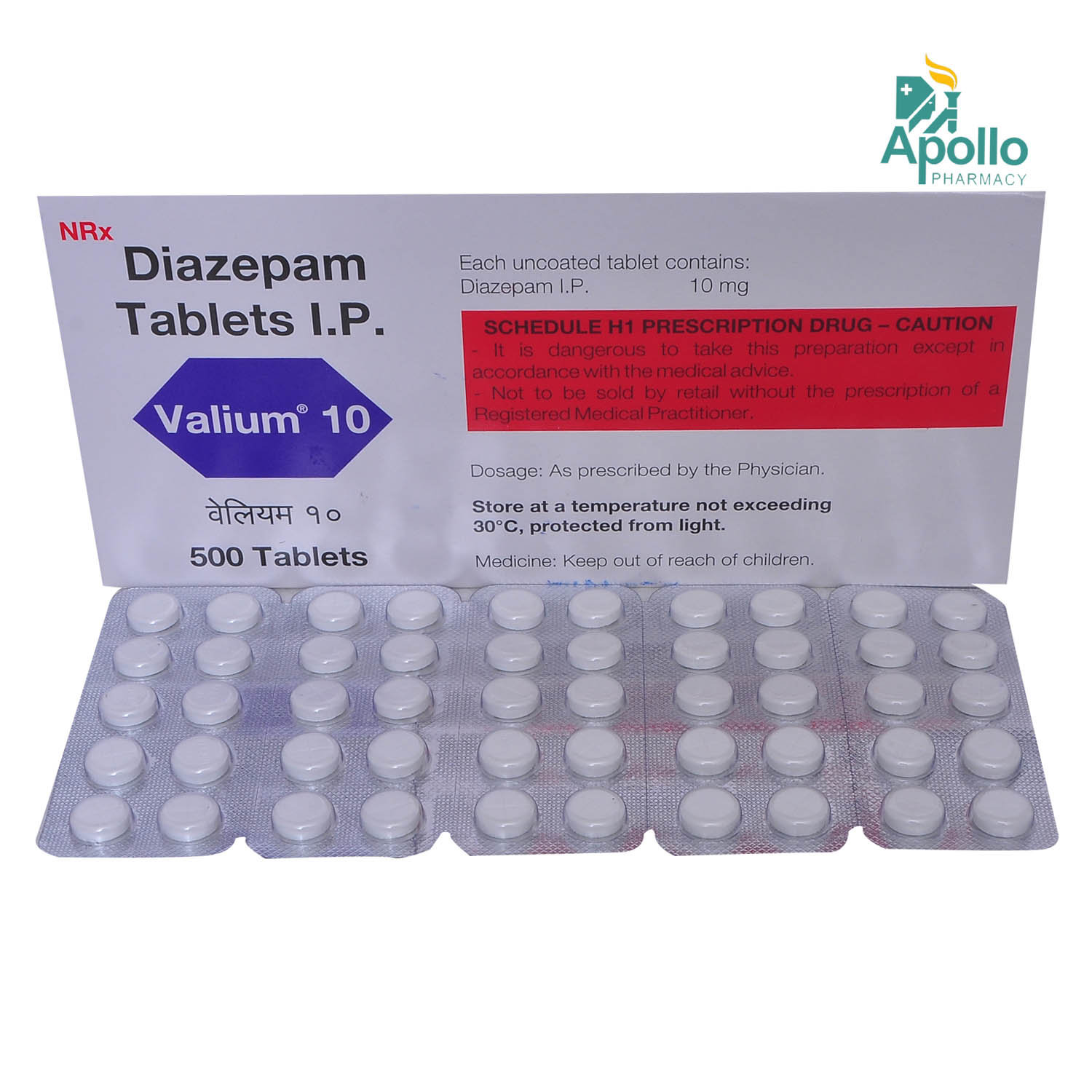
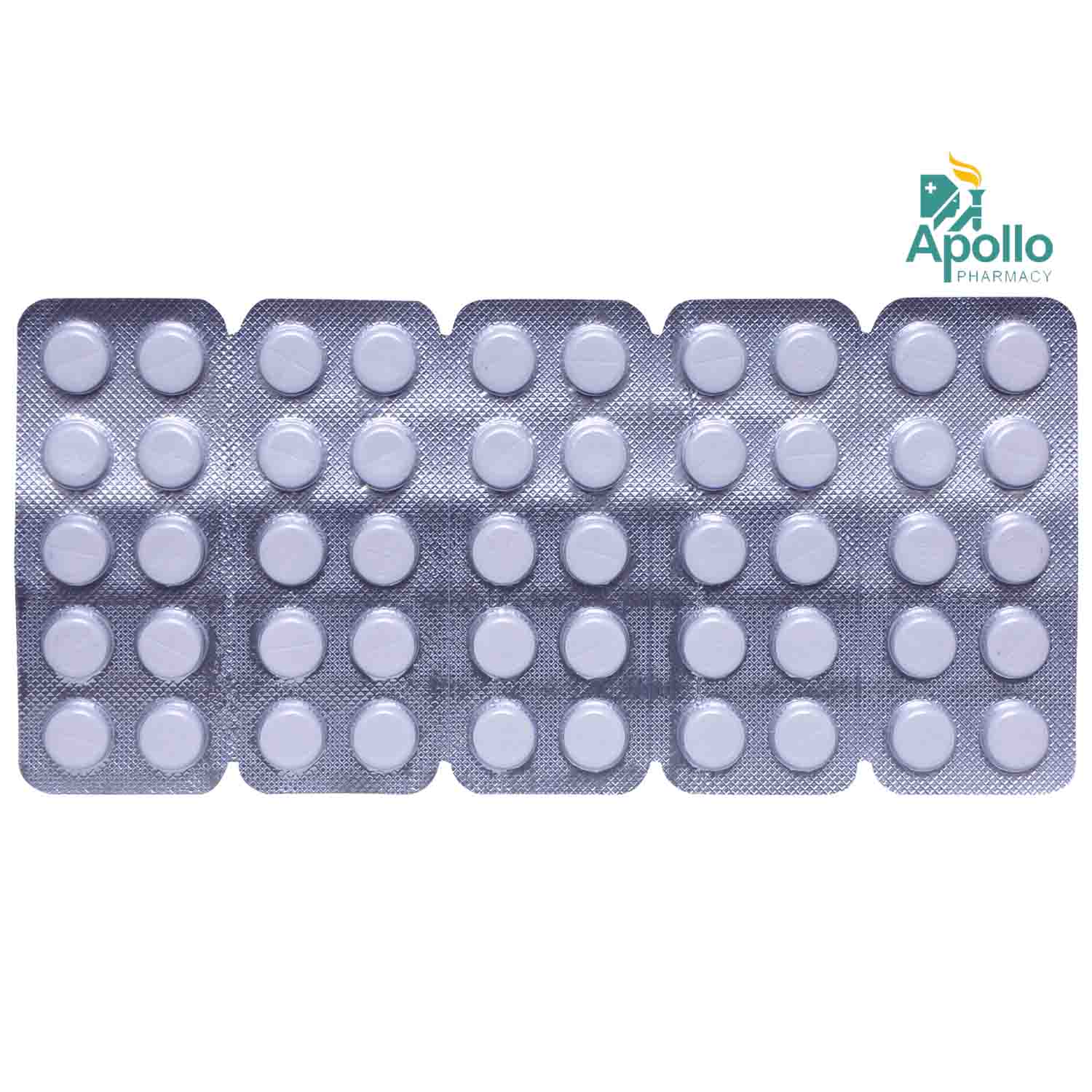
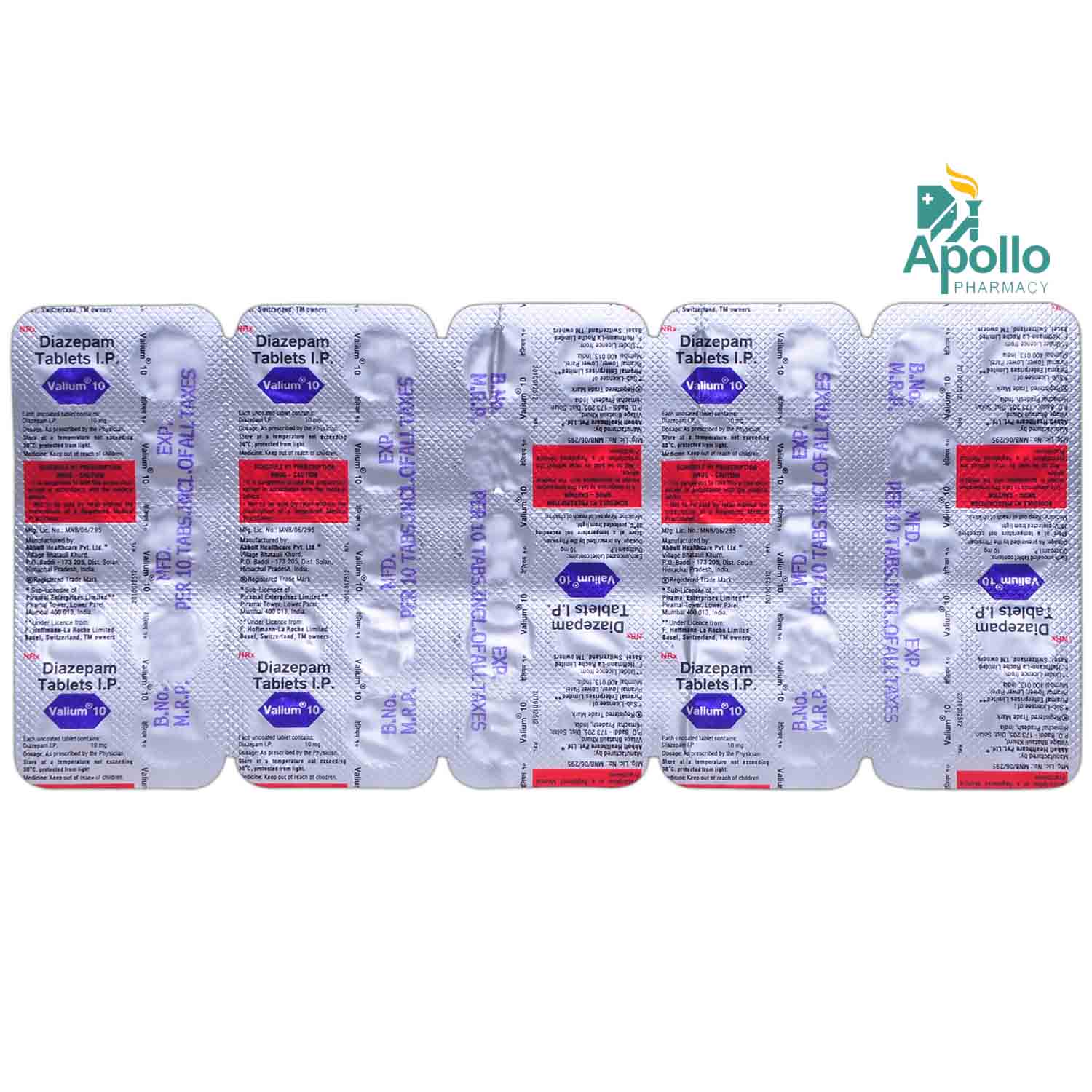
MRP ₹107
(Inclusive of all Taxes)
₹16.1 Cashback (15%)
know your delivery time
Provide Delivery Location
Composition :
Manufacturer/Marketer :
Consume Type :
Expires on or after :
Return Policy :

Secure Payment

Trusted by 8 Crore Indians

Genuine Products
Therapeutic Class
Country of origin
Manufacturer/Marketer address
Author Details
We provide you with authentic, trustworthy and relevant information
Disclaimer
Alcohol
Safe if prescribed
Taking Valium 10Mg Tablet with alcohol can increase the side effects of Valium 10Mg Tablet like dizziness, drowsiness, and difficulty in concentrating. In a few cases, people may also experience impairment in thinking and judgment. Hence, you should avoid or limit the use of alcohol while being treated with Valium 10Mg Tablet .
Pregnancy
Consult your doctor
Valium 10Mg Tablet is a Category D pregnancy drug that is considered unsafe for pregnant women. Valium 10Mg Tablet can have some harmful effects on the unborn baby (foetus), so your doctor will weigh the benefits and any potential risks before prescribing it to you.
Breast Feeding
Consult your doctor
Valium 10Mg Tablet passes into the breast milk and may cause some degree of sedation in the baby. So, if you note any signs in the baby let your doctor know about this.
Driving
Safe if prescribed
Valium 10Mg Tablet may cause sleepiness, dizziness, drowsiness and visual disturbances. So, it is not recommended to drive or operate machinery after taking Valium 10Mg Tablet . Tell your doctor if you get these types of side effects.
Liver
Consult your doctor
Valium 10Mg Tablet to be taken with caution, especially if you have a history of liver disease. The dose may have to be adjusted by your doctor.
Kidney
Consult your doctor
Valium 10Mg Tablet to be taken with caution, especially if you have a history of kidney disease. The dose may have to be adjusted by your doctor.
Children
Safe if prescribed
It is not known if Valium 10Mg Tablet is safe and effective in children under 6 months of age. So, it is not recommended for infants less than 6 months. However, you should consult a doctor regarding dosage for children above 6 months.
Product Substitutes
About Valium 10Mg Tablet
Valium 10Mg Tablet belongs to a group of medications called Benzodiazepine (BZD), primarily used to treat short-term relief of severe anxiety disorder, muscle spasms and fits (seizures). Besides this, it also reduces alcohol withdrawal symptoms (like sweating or difficulty sleeping etc.). Before undergoing any surgical procedure, Valium 10Mg Tablet is sometimes given as 'pre-med' to prevent anxiety, fear and worry. An anxiety disorder is a mental condition characterized by feelings of excessive fear or worry that affect an individual's daily activities. High anxiety levels can cause panic attacks, with intense feelings of nervousness, fear, and sudden onset of sweating, hyperventilation, fast heartbeat, and skin flushing.
Valium 10Mg Tablet contains Diazepam, which works by increasing levels of brain cells (neurons) calming chemical, known as gamma-aminobutyric acid (GABA), in your brain that helps to relieve anxiety and stop seizures attacks (fits), and relaxation of the tense muscles. Besides this, Valium 10Mg Tablet relieves temporary insomnia (sleeplessness) due to anxiety disorder. Off-label uses for Valium 10Mg Tablet include alcohol withdrawal syndrome, insomnia, panic disorder, chemotherapy-associated nausea and vomiting. Valium 10Mg Tablet is not recommended for mild to moderate anxiety and tension related to day-to-day life.
Valium 10Mg Tablet should not be used unless prescribed by a doctor. Depending on your medical condition, you are advised to take Valium 10Mg Tablet for as long as your doctor prescribes it. Sometimes, you may experience certain common side effects, such as daytime drowsiness, light-headedness, unsteadiness, or dizziness. Most of these side effects of Valium 10Mg Tablet do not require medical attention and gradually resolve over time. However, if the side effects are persistent, reach out to your doctor.
Try not to stop taking Valium 10Mg Tablet of your own as it may cause withdrawal symptoms. Do not take Valium 10Mg Tablet if you have any lung disease, muscle weakness (myasthenia gravis), sleeping disorder or difficulty in sleeping (sleep apnoea), severe liver disease, or problem with alcohol or other prescription recreational drugs. Valium 10Mg Tablet is a habit-forming drug, so there is a risk of dependence on Valium 10Mg Tablet . So, before stopping Valium 10Mg Tablet , contact a doctor as it may cause withdrawal symptoms like anxiety, increased heart rate, tremor, or general unwell feeling. If you are pregnant or breastfeeding, please tell your doctor so that your doctor will weigh the benefits and any potential risks before prescribing it to you. Do not drive or operate machinery as Valium 10Mg Tablet may reduce mental alertness.
Uses of Valium 10Mg Tablet
Medicinal Benefits Mweb
Key Benefits
Valium 10Mg Tablet helps manage anxiety disorder and relieve symptoms of anxiety, acute alcohol withdrawal, and skeletal muscle spasm. When you take Valium 10Mg Tablet , you will have more chemical messenger (GABA neurotransmitter) in your body. It decreases the feeling of nervousness, stress, and anxiety, which leads to a state of calm and relaxation. Valium 10Mg Tablet benefits people who struggle with anxiety and worries in daily life. Regular intake of the prescribed dose of Valium 10Mg Tablet improves social life, your ability and performance at work, and general wellbeing.
Directions for Use
Side Effects of Valium 10Mg Tablet
- Daytime drowsiness
- Feeling sleepy (sedation)
- Light-headedness
- Unsteadiness, or dizziness
- Confusion
- Shaky hands or tremors
Drug Warnings
Taking Valium 10Mg Tablet with opioid pain killer medicines can cause severe drowsiness, breathing problems, coma, and even death. Valium 10Mg Tablet should be taken with extreme caution in patients with a history of alcoholism or drug abuse. Do not take Valium 10Mg Tablet if you have had severe breathing problems, are allergic to Valium 10Mg Tablet or other related benzodiazepine class, muscle weakness (myasthenia gravis), severe liver problem, breathing problems while sleep (apnoea), breastfeeding, pregnant or planning for pregnancy, and glaucoma (high blood pressure in eyes). Valium 10Mg Tablet may affect your ability to drive a motor vehicle or operate heavy machinery if taken with alcohol. If you feel excess suicidal thoughts, difficulty in concentration, sleep disturbances (apnoea), dizziness, or sleepiness, let your doctor know about this. A pregnant or nursing mother should consult a doctor before intake as it is a Category D pregnancy medicine. Valium 10Mg Tablet can be used in patients with open-angle glaucoma but is contraindicated in acute narrow-angle glaucoma. Valium 10Mg Tablet should not be given for the treatment of psychotic patients. Abrupt withdrawal of Valium 10Mg Tablet may cause a temporary increase in the frequency and severity of seizures (fit). So, before stopping taking Valium 10Mg Tablet , discuss with the doctor.
Drug-Drug Interactions
Drug-Drug Interactions
Login/Sign Up
Taking of Valium 10Mg Tablet with methadone may cause serious side effects like respiratory distress.
How to manage the interaction:
Although there is a possible interaction, Valium 10Mg Tablet should be taken with methadone only if prescribed by the doctor. The doctor may prescribe alternatives that do not interact, dose adjustment, or more frequent monitoring to safely use both medications. Do not discontinue the medication without consulting a doctor.
Co-administration of Tapentadol together with Valium 10Mg Tablet can increase the risk or severity of side effects like decreased breathing rate, irregular heart rhythms, or problems with movement and memory.
How to manage the interaction:
Taking Valium 10Mg Tablet with Tapentadol can result in an interaction, it can be taken if your doctor has advised it. Contact a doctor immediately if you experience signs such as drowsiness, lightheadedness, palpitations, confusion, severe weakness, or difficulty breathing. Do not discontinue any medications without consulting a doctor.
Co-administration of Valium 10Mg Tablet with esketamine may increase side effects such as confusion, drowsiness, difficulty concentrating, and impairment in thinking, judgment, reaction speed, and motor coordination.
How to manage the interaction:
Although there is a possible interaction, Valium 10Mg Tablet should be taken with esketamine if prescribed by the doctor. However, avoid driving or operating heavy machinery after treatment with esketamine as you may experience drowsiness. Do not discontinue the medication without consulting a doctor.
Taking Valium 10Mg Tablet together with fluvoxamine may cause an increase in side effects such as drowsiness, confusion, muscle weakness, and fainting.
How to manage the interaction:
Although there is a possible interaction, Valium 10Mg Tablet can be taken with fluvoxamine if prescribed by the doctor. However, if you experience any unusual symptoms consult your doctor. Do not discontinue any medications without consulting a doctor.
Co-administration of Sufentanil with Valium 10Mg Tablet can increase the risk of adverse effects.
How to manage the interaction:
Co-administration of Valium 10Mg Tablet with Sufentanil can possibly result in an interaction, but it can be taken if your doctor has advised it. If you notice any of these symptoms - feeling tired or sleepy, having trouble breathing, or a slower heartbeat - make sure to contact your doctor right away. Do not stop using any medications without first talking to your doctor.
Co-administration of Valium 10Mg Tablet with clozapine may increase the effects of both medicines.
How to manage the interaction:
Although there is a possible interaction, Valium 10Mg Tablet can be taken with clozapine if prescribed by the doctor. Consult the prescriber if you experience side effects like low blood pressure, confusion, drowsiness, shallow breathing, incoordination, and weak pulse. Your doctor may advise dose adjustment or frequent monitoring to safely use both medicines. Do not discontinue the medications without consulting a doctor.
Taking of Valium 10Mg Tablet with hydromorphone may cause serious side effects like respiratory depression.
How to manage the interaction:
Although there is a possible interaction, Valium 10Mg Tablet should be taken with hydromorphone only if prescribed by the doctor. Consult the doctor if you have any concerns, doctor may prescribe alternatives that do not interact. Do not discontinue the medication without consulting a doctor.
Co-administration of Valium 10Mg Tablet with oxycodone may cause serious side effects like respiratory distress.
How to manage the interaction:
Consult the doctor if you are taking Valium 10Mg Tablet and oxycodone. The doctor may prescribe alternatives that do not interact, or dose adjustment, or frequent monitoring to safely use both medicines. Do not discontinue the medication without consulting a doctor.
Co-administration of Valium 10Mg Tablet with Ketamine can increase the risk of CNS depression.
How to manage the interaction:
Taking Ketamine with Valium 10Mg Tablet together can possibly result in an interaction, but it can be taken if your doctor has advised it. If you feel dizzy, sleepy, confused, have trouble focusing, feel too relaxed, or have trouble breathing, make sure to contact your doctor right away. Do not stop using any medications without first talking to your doctor.
Co-administration of Valium 10Mg Tablet with tramadol may cause serious side effects like respiratory distress or coma.
How to manage the interaction:
Consult the doctor if you are taking Valium 10Mg Tablet and tramadol. The doctor may prescribe alternatives that do not interact, dose adjustment, or more frequent monitoring to safely use both medications. Do not discontinue the medication without consulting a doctor.
Drug-Food Interactions
Drug-Food Interactions
Login/Sign Up
Grapefruit
How to manage the interaction:
Grapefruit and grapefruit juice may interact with Valium 10Mg Tablet leading to potentially dangerous side effects. Avoid increasing or decreasing the amount of grapefruit products in your diet without talking to a doctor.
Drug-Diseases Interactions
Drug-Diseases Interactions
Login/Sign Up
Valium 10Mg Tablet shouldn't be used by people with myasthenia gravis.
How to manage the interaction:
The use of Valium 10Mg Tablet is not recommended in patients with myasthenia gravis (an autoimmune disease).
Injecting benzodiazepines into individuals who are in shock or a coma is not advised. In these patients, the hypnotic and hypotensive effects of these drugs may last longer and be more potent.
How to manage the interaction:
The hypnotic (sleep-inducing) and hypotensive (lowering blood pressure) effects of these agents may be prolonged and intensified. The medicine should not be administered to patients in shock or coma.
The incidence of generalised tonic-clonic seizures (grand mal) or their onset may be accelerated in people with seizure disorders who use benzodiazepines.
How to manage the interaction:
Benzodiazepines may increase the occurrence of seizures. Dose adjustment or initiation of appropriate anticonvulsant medication may be needed. Do not discontinue medication without first consulting with the physician.
When administered in large doses and/or by intravenous administration, benzodiazepines have the potential to cause respiratory depression and apnea.
How to manage the interaction:
Usually when given in high dosages and/or by intravenous administration, benzodiazepines may cause respiratory depression and apnea. Therapy with benzodiazepines should be administered cautiously in these patients.
The liver breaks down benzodiazepines, and the metabolites are then eliminated in the urine. The oxidative N-dealkylation of chlordiazepoxide, clorazepate, Valium 10Mg Tablet, flurazepam, and quazepam results in active metabolites that have significantly longer half-lives than the parent substance.
How to manage the interaction:
Benzodiazepines are metabolized by the liver. Therapy with benzodiazepines should be administered cautiously at lower initial dosages in patients with impaired liver function.
It is possible for benzodiazepines to lead to abuse and dependence. Particularly with repeated usage and/or high dosages, tolerance and physical and psychological dependence may develop.
How to manage the interaction:
Benzodiazepines have the potential to cause dependence and abuse. It should be used with caution in patients with addiction- prone individuals, such as those with a history of alcohol or substance abuse. The dose should be gradually reduced if dependency is suspected.
The makers believe that using benzodiazepines while a patient has acute angle-closure glaucoma or untreated open-angle glaucoma is contraindicated.
How to manage the interaction:
Benzodiazepine is not recommended in patients with acute angle-closure glaucoma or untreated open-angle glaucoma.
Alcohol and benzodiazepines should not be combined. Vital signs are decreased in alcohol-intoxicated patients.
How to manage the interaction:
The use of benzodiazepines with alcohol is not recommended. Therapy with benzodiazepines should be administered cautiously in patients who might be prone to acute alcohol intake.
Drug-Drug Interactions Checker List
- CARBAMAZEPINE
- FLUVOXAMINE
- PHENOBARBITAL
- PHENYTOIN
- PRIMIDONE
- AMPRENAVIR
- RITONAVIR
- CIMETIDINE
- DISULFIRAM
- RIFAMPICIN
- LEVODOPA
- THEOPHYLLINE
Habit Forming
Special Advise
- Valium 10Mg Tablet causes drowsiness. Avoid doing activities that require your complete focus and attention, like driving when on this drug.
- An abrupt stoppage of Valium 10Mg Tablet can lead to significant withdrawal symptoms. Always discuss with your doctor about decreasing the dosage before completely stopping its usage.
- Avoid consuming alcohol while on Valium 10Mg Tablet as it can lead to dangerous side effects.
- Valium 10Mg Tablet is unsafe for usage if you're pregnant or are planning to get pregnant. Discuss with your doctor in such situations about changing/replacing the medicine with safer alternatives.
- To avoid getting addicted to this drug, take it only in prescribed quantities and only as directed by your doctor. Do not self-medicate.
Diet & Lifestyle Advise
- Regular exercise can help lower anxiety by releasing endorphins and improving your sleep and self-image.
- Find humour in your daily life. Try to watch a comedy show to help relieve stress.
- You can try increasing your mindfulness by including yoga, meditation, cognitive therapy, and mindfulness-based stress reduction.
- Drink enough water to stay hydrated, and limit or avoid alcohol and caffeine to relieve anxiety.
- Include a diet rich in whole grains, vegetables, and fruits. This is a healthier option than eating many simple carbohydrates in processed foods.
- Herbs like turmeric, ginger, and chamomile contain anti-inflammatory properties. Including this stuff in the meal can reduce inflammation caused due to anxiety disorder.
- Reduce your alcohol, caffeine, added sugar, high salt, and high fat intake. Especially trans-fat may help also help reduce inflammation.
- You can include antioxidants in your daily diet like ashwagandha, omega-3 fatty acids, green tea and lemon balm.
- Try to spend time with your friends and family. Having a strong social network may help you lower your risk of anxiety.
All Substitutes & Brand Comparisons
RX
Out of StockNot for online saleDiacalm-10 mg Tablet 10's
East West Pharma India Pvt Ltd
₹29
(₹2.61 per unit)
72% CHEAPERRX
Out of StockNot for online saleDizpam-10 Tablet 10's
Neuro Vision
₹90
(₹9.0 per unit)
6% CHEAPER

Have a query?
Buy best C.n.s Drugs products by
Intas Pharmaceuticals Ltd
Sun Pharmaceutical Industries Ltd
Torrent Pharmaceuticals Ltd
Alkem Laboratories Ltd
Abbott India Ltd
Cipla Ltd
Alteus Biogenics Pvt Ltd
Micro Labs Ltd
Lupin Ltd
Ipca Laboratories Ltd
D D Pharmaceuticals Pvt Ltd
Icon Life Sciences
Mankind Pharma Pvt Ltd
Tripada Healthcare Pvt Ltd
Arinna Lifesciences Ltd
Linux Laboratories Pvt Ltd
East West Pharma India Pvt Ltd
La Renon Healthcare Pvt Ltd
Talent India Pvt Ltd
Tas Med India Pvt Ltd
Zydus Healthcare Ltd
Cnx Health Care Pvt Ltd
Eris Life Sciences Ltd
Leeford Healthcare Ltd
Emcure Pharmaceuticals Ltd
Macleods Pharmaceuticals Ltd
Sigmund Promedica
Aristo Pharmaceuticals Pvt Ltd
Dr Reddy's Laboratories Ltd
Troikaa Pharmaceuticals Ltd
Consern Pharma Ltd
Zydus Cadila
Shine Pharmaceuticals Ltd
Wockhardt Ltd
Ardent Life Sciences Pvt Ltd
Crescent Formulations Pvt Ltd
Theo Pharma Pvt Ltd
Reliance Formulation Pvt Ltd
Ikon Pharmaceuticals Pvt Ltd
Propel Healthcare
Neon Laboratories Ltd
Jagsam Pharma
Msn Laboratories Pvt Ltd
Morepen Laboratories Ltd
Pulse Pharmaceuticals
Sanofi India Ltd
Med Manor Organics Pvt Ltd
Hetero Healthcare Pvt Ltd
Novartis India Ltd
Crescent Therapeutics Ltd
Elder Pharmaceuticals Ltd
Solvate Laboratories Pvt Ltd
Akumentis Healthcare Ltd
Mova Pharmaceutical Pvt Ltd
Psyco Remedies Ltd
Tripada Lifecare Pvt Ltd
Ajanta Pharma Ltd
Cyrus Remedies Pvt Ltd
Medishri Healthcare Pvt Ltd
Cadila Healthcare Ltd
Glenmark Pharmaceuticals Ltd
Matteo Health Care Pvt Ltd
Hbc Life Sciences Pvt Ltd
Lyf Healthcare
Matias Healthcare Pvt Ltd
Mesmer Pharmaceuticals
Alembic Pharmaceuticals Ltd
Capital Pharma
Crescent Pharmaceuticals
Medopharm Pvt Ltd
Alniche Life Sciences Pvt Ltd
Kivi Labs Ltd
Talin Remedies Pvt Ltd
USV Pvt Ltd
Quince Lifesciences Pvt Ltd
Solis Pharmaceuticals
Infivis Life Care
Zuventus Healthcare Ltd
Cadila Pharmaceuticals Ltd
Pfizer Ltd
Wallace Pharmaceuticals Pvt Ltd
A N Pharmacia Laboratories Pvt Ltd
Blue Cross Laboratories Pvt Ltd
Jenburkt Pharmaceuticals Ltd
Lia Life Sciences Pvt Ltd
Mano Pharma
Medley Pharmaceuticals Ltd
Primus Remedies Pvt Ltd
FDC Ltd
Maneesh Pharmaceuticals Ltd
Apex Laboratories Pvt Ltd
Gagnant Healthcare Pvt Ltd
Ozone Pharmaceuticals Ltd
RPG Life Sciences Ltd
Strides Shasun Ltd
Unichem International
GlaxoSmithKline Pharmaceuticals Ltd
Kuresys Labs Pvt Ltd
LA Pharma
Trion Pharma India Llp
Customers Also Bought





